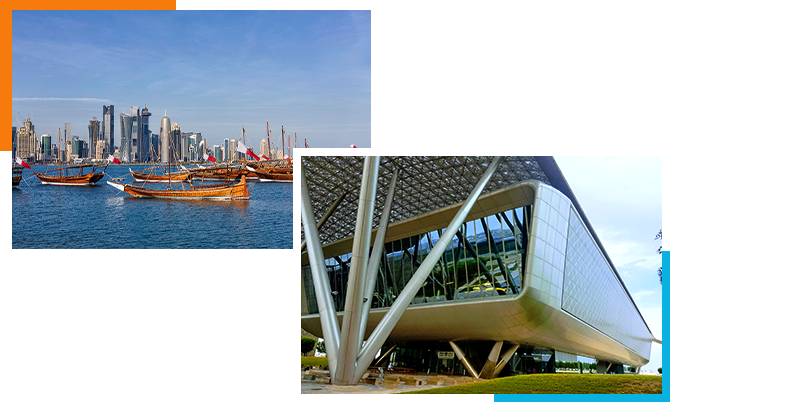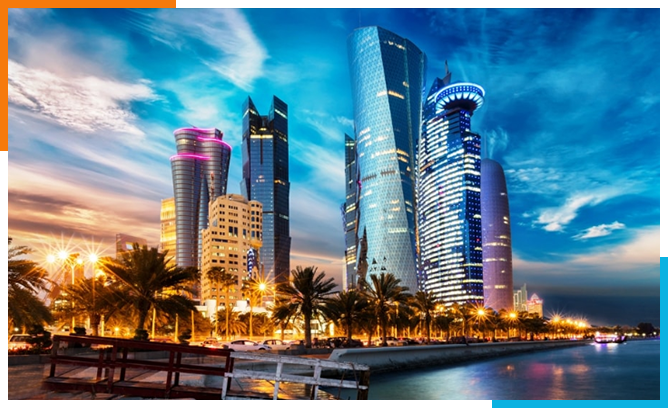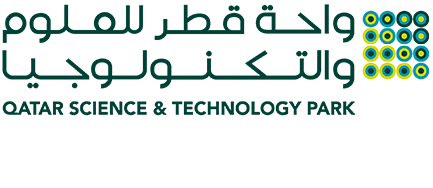
CONTACT US
Address
Ministry of Communication and Information Technology
Lotus Tower, 12th Floor
Al Corniche Street
Doha, Qatar
CONTACT US
Tasmu Digital Valley
Address
Ministry of Communication and Information Technology
Lotus Tower, 12th Floor
Al Corniche Street
Doha, Qatar
Main navigation
TASMU Digital Valley
Qatar Digital Industry Metrics
Numeric Metric
Rank Metric
Communications Qatar,Emerging Technologies Qatar,Qatar Digital Industry,Investment Opportunities Qatar,Digital Market E-Commerce in Qatar,Qatar Digital Market,Technology Qatar
The Ministry of Transportation and Communications (MOTC) and Qatar Free Zones Authority (QFZA) established Tasmu Digital Valley as an innovation cluster where different sectors can come together to help achieve the vision of Smart Qatar
Qatar Digital Market
The Digital Market in Qatar has high potential, which is confirmed by many worldwide
rankings. Here are some areas that demonstrate this potential.
Digital Market
The digital market is supported by a number of incubation programs, and is forecasted to expand by 7.2% per year through 2023. The key sub-sectors of the digital market which will experience the most growth are ICT professional services and cloud services.
There is a high level of startup support through the main incubation centers such as
Startups receive support in terms of technology support, product development, licenses access, cloud hosting, operational support, marketing support, and working space. This level of support for nascent digital startups is pivotal to the industry’s growth potential.
Enabling Environment
There is a strong enabling environment for innovation and development in the digital space. The following projects and programs are just a few that have been set up to develop the digital sector:

Opportunities
The government has embarked on projects that would bring many opportunities for the digital sector such as Lusail City and the Qatar Science & Technology Park

Investment
Heavy investment in 114 use cases of the Tasmu Smart Qatar initiative that would leverage the latest digital technologies in five key sectors logistics, environment, healthcare, sports, and transportation

Programs
Additionally, there are a number of programs to enable entrepreneurship in the digital sector, SME development of digital capabilities & e-commerce
Talent Base
The country is home to many native education institutions and foreign faculties at different levels, most conveniently located in "Education City". This extended campus covers over 5 square miles and houses 9 universities, including Carnegie Mellon University in Qatar (CMU-Q), Texas A&M University, and Hamad Bin Khalifa University (HBKU)
5
Ease of Hiring
5
Availability of Scientist & Engineers
3
Labour Productivity Per Employee
4
Attract Talent
Infrastructure
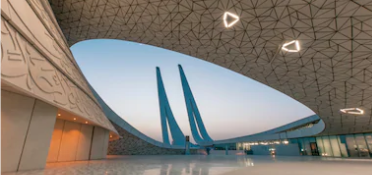
Qatar has a highly advanced, modern infrastructure that supports the network requirements of enterprises by providing world-class speed and reliability. Qatar is one of the first countries in the world to adopt the 5G network, demonstrating its commitment to keeping pace with the world’s technological developments. Government investments in infrastructure have created one of the highest levels of mobile network coverage in the world. Additionally, the government’s 2015 5-year National ICT Strategy aims to increase national ICT connectivity and adoption. This investment aims to ensure the industry has quality basic infrastructure on which to develop.
Political Stability
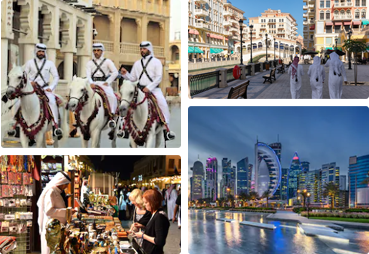
Qatar is open for foreigners looking to study, work, or set up a business. Qatar attracts a large expatriate community of educated professionals because it is a safe place to live that offers a wide range of opportunities and a high-caliber quality of life.
Qataris are welcoming people, who embrace change and have a tolerant and open-minded outlook to visitors. Both nationals and expats enjoy comfortable lives here, as demonstrated by the over 85 nationalities that chose to settle.
In the 2019 Global Crime Index, Qatar was ranked the safest country in the world, ahead of Japan.
Free Zones
There are a variety of free zones in Qatar for foreign and domestic companies to take advantage of. The focus of these free zones varies, but all free zones emphasize the development of the technological sector.
Umm Al Houl Free Zone
Launched early 2019
- 34 km2 free zone near Hamad Port, with its own MARSA port
- Focus on logistics, consumer products, light manufacturing, technology and applications services and pharmaceuticals

Digital Market
The digital market is supported by a number of incubation programs, and is forecasted to expand by 7% per year through 2022. The key sub-sectors of the digital market which will experience the most growth are ICT professional services and cloud services.
There is a high level of startup support through the main incubation centers such as the

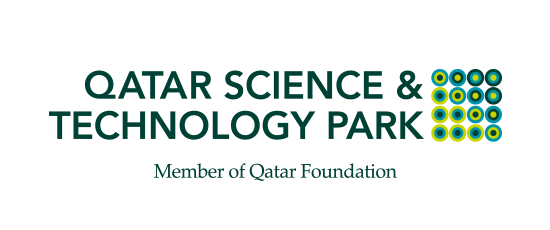


Startups receive support in terms of technology support, product development, licenses access, cloud hosting, operational support, marketing support, and working space. This level of support for nascent digital startups is pivotal to the industry’s growth potential.
Enabling Environment
There is a strong enabling environment for innovation and development in the digital space. The following projects and programs are just a few that have been set up to develop the digital sector

Investment
Heavy investment in 114 use cases of the Tasmu Smart Qatar initiative that would leverage the latest digital technologies in five key sectors logistics, environment, healthcare, sports, and transportation

Programs
Additionally, there are a number of programs to enable entrepreneurship in the digital sector, SME development of digital capabilities & e-commerce
Talent Base
The country is home to many native education institutions and foreign faculties at different levels, all conveniently located in ‘Education City”. This extended campus covers over 5 square miles and houses 9 universities, including Qatar University (QU), Texas A&M University, and Hamad Bin Khalifa University (HBKU)

Sidra Medical and Research Centre is a 400-bed hospital, medical education center and biomedical research center.

The Qatar Computing Research Institute (QCRI) is a nonprofit multidisciplinary computing research institute. It is one of the three national research institutes under Qatar Foundation and specializes in applied computing research
5
Ease of Hiring
5
Availability of Scientist & Engineers
3
Labour Productivity Per Employee
4
Attract Talent
Infrastructure

Qatar has a highly advanced, modern infrastructure that supports the network requirements of enterprises by providing world-class speed and reliability. Qatar is one of the first countries in the world to adopt the 5G network, demonstrating its commitment to keeping pace with the world’s technological developments. Government investments in infrastructure have created one of the highest levels of mobile network coverage in the world. Additionally, the government’s 2015 5-year National ICT Strategy aims to increase national ICT connectivity and adoption. This investment aims to ensure the industry has quality basic infrastructure on which to develop.
Free Zones
There are a variety of free zones in Qatar for foreign and domestic companies to take advantage of. The focus of these free zones varies, but all free zones emphasize the development of the technological sector.
Umm Al Houl Free Zone
Launched early 2019
- 34 km2 free zone near Hamad Port, with its own MARSA port
- Focus on logistics, consumer products, light manufacturing, technology and applications services and pharmaceuticals

Political Stability
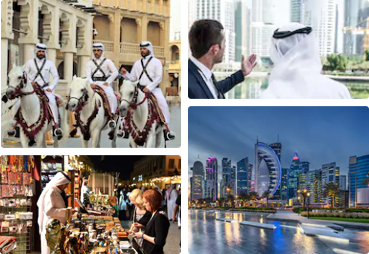
Qatar is open for foreigners looking to study, work, or set up a business. Qatar attracts a large expatriate community of educated professionals because it is a safe place to live that offers a wide range of opportunities and a high-caliber quality of life.
Qataris are welcoming people, who embrace change and have a tolerant and open-minded outlook to visitors. Both nationals and expats enjoy comfortable lives here, as demonstrated by the over 85 nationalities that chose to settle.
In the 2019 Global Crime Index, Qatar was ranked the safest country in the world, ahead of Japan.

How do you describe yourself?
We suggest that you visit
Investment Opportunities in the Digital Market in Qatar
Investment opportunities in the digital sector cover numerous technology areas that show high potential for adoption due to ongoing and planned initiatives within the public and private sectors.


